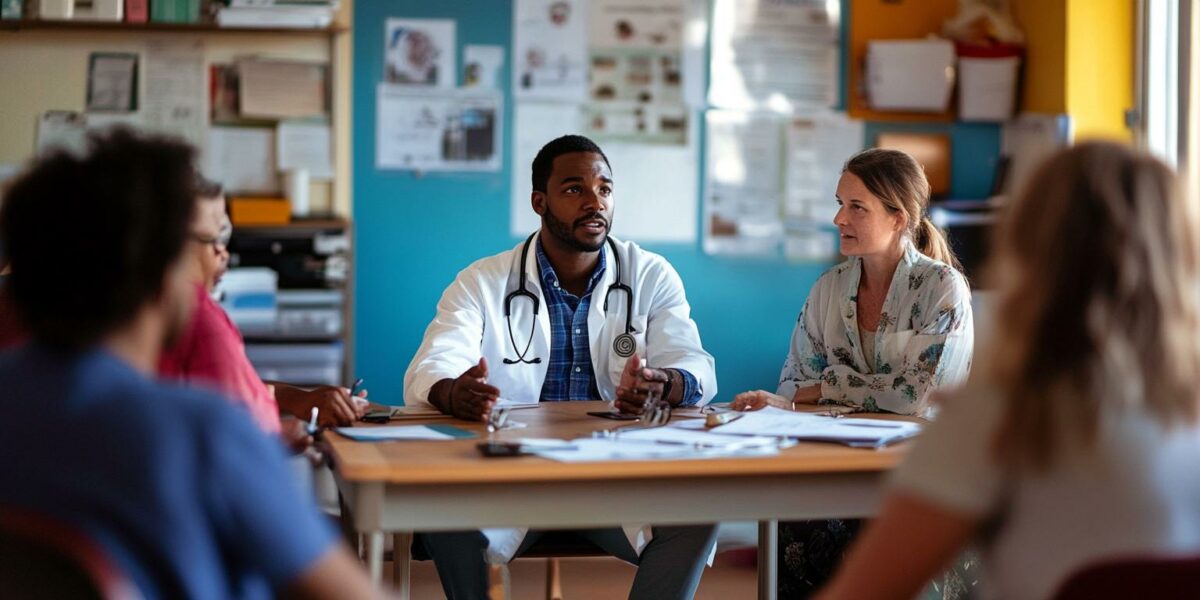The Far-Reaching Effects of Climate Change on Health
Climate change is increasingly recognized as a significant public health issue. It has led to longer allergy seasons, the spread of infectious diseases, and a rise in heat stroke cases. Interestingly, it may even increase the likelihood of developing conditions like diabetes. How are healthcare professionals responding to these challenges?
Dr. Ricardo Gonzalez-Fisher, a surgical oncologist, operates a public health clinic in Denver. He focuses on advising construction workers on how to prevent heat stroke, skin cancer, and other climate-related health issues. His insights are invaluable for those working in high-risk environments.
Another expert, Dr. Sheela Mahnke, is a pediatrician at Every Child Pediatrics. She emphasizes the importance of providing children with access to clean air and water. Additionally, she has been an advocate for state policies aimed at mitigating the impacts of climate change on the younger population.
Dr. Bhargavi Chekuri, a family physician, directs the diploma in climate medicine at the University of Colorado. She educates healthcare workers on how to adapt to the health challenges posed by climate variations. Her training is crucial in preparing the medical community for future climate-related health issues.
Adapting Medical Practices for a Changing Climate
The healthcare sector is rapidly evolving to address the health risks posed by climate change. Doctors are now incorporating new strategies into their practices. For instance, advising patients on how to avoid heat-related illnesses has become more common. These adjustments are essential for maintaining public health.
Some key strategies being implemented include:
- Educating patients about the risks of prolonged sun exposure
- Recommending preventive measures for allergy sufferers
- Advocating for policy changes to protect vulnerable groups
Dr. Gonzalez-Fisher has been particularly vocal about the need for public awareness. He believes that informed communities can better protect themselves from climate-related health risks. His clinic serves as a model for how healthcare providers can adapt to changing environmental conditions.
Meanwhile, pediatricians like Dr. Mahnke are pushing for cleaner air and water standards. They argue that children are especially vulnerable to the adverse effects of climate change. Their advocacy is crucial for legislative changes that can lead to healthier living conditions.
Innovative Training for Health Professionals
Training programs are being developed to equip healthcare professionals with the knowledge needed to tackle climate-related health issues. These programs are essential for preparing the next generation of doctors and nurses. Dr. Chekuri’s diploma in climate medicine is a prime example of such initiatives.
She emphasizes the importance of integrating climate science into medical curricula. This integration ensures that future healthcare providers are well-versed in the unique challenges posed by a changing climate. Her efforts are paving the way for a more resilient healthcare system.
Dr. Mahnke’s advocacy at the statehouse also highlights the role of policy in addressing climate health impacts. By pushing for regulations that reduce pollution, she aims to create a healthier environment for all. Her work underscores the interconnectedness of health and environmental policies.
In summary, the medical community is taking significant steps to address the health impacts of climate change. Through education, advocacy, and innovative training programs, healthcare providers are better equipped to protect public health in an era of environmental uncertainty.
Community Efforts to Combat Climate Health Risks
Community initiatives are playing a vital role in combating the health risks associated with climate change. Local clinics and health organizations are at the forefront of these efforts. They provide critical services and information to vulnerable populations.
Dr. Gonzalez-Fisher’s clinic is an excellent example of community-based healthcare. By offering specialized advice to construction workers, his clinic helps mitigate the health risks posed by extreme weather conditions. This approach is both practical and effective.
Similarly, Dr. Mahnke’s work with Every Child Pediatrics focuses on community health. She believes that accessible healthcare is a fundamental right. Her efforts to ensure clean air and water for children demonstrate a commitment to long-term public health.
In conclusion, the combined efforts of medical professionals and community organizations are crucial in addressing the health impacts of climate change. Their proactive measures are essential for building a healthier and more resilient society.



Jane
Never thought I’d be thanking doctors for fighting climate change, but here we are. Kudos to Dr. Gonzalez-Fisher and team!
ginger_radiance
Dr. Chekuri’s diploma in climate medicine sounds revolutionary! How can other medical schools integrate similar programs?
Ryan
Interesting post, but I’m curious about the specific policies Dr. Mahnke is advocating for?
Noah
Why isn’t there more public awareness about these issues? It’s scary!
carolinelegend
Great read, but how can individuals contribute to reducing these health risks?
Sofia
This is really eye-opening. Thank you for sharing such important information! 😊
ZoeSpecter
Wow, I had no idea climate change could cause diabetes! Can you share more details on that?